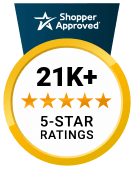Prop 65
What is California Prop 65?
Formerly known as Safe Drinking Water and Toxic Enforcement Act, Proposition 65 requires the publication of a list of chemicals that the State of California determines causes cancer or birth defects. They also require companies that sell products that contain those chemicals to inform California residents about the risk of exposure to such chemicals by including a warning notice on the product label, or to inform the customer in an approved way before purchase. Proposition 65 warning notices can be seen all throughout California in restaurants, grocery stores, hotels, bars, schools, hospitals, and amusement parks.
What Are The Prop 65 Limits?
Prop 65 includes safety limits that are lower than any other system in the world, including Europe’s.
A safe approach to harmful contaminants is important, but setting such a low threshold for naturally-occurring heavy metals excludes an entire range of health-promoting foods and supplements — including most fruits and vegetables.
For example, the California Proposition 65 reproductive limit for Lead is .5 mcg per day, while the World Health Organization’s Lead limit is 10 mcg per day and the NSF International limit is 20 mcg per day.
Are All States Affected by Proposition 65?
Proposition 65 only applies in California. Manufacturers, distributors, and retailers who sell consumer goods in California are subject to Proposition 65’s warning notice requirements, whether or not the company is located in California. However, it is certainly possible that a product originally intended for sale in California that has a Proposition 65 warning notice on it could find its way to another State and be offered for sale there, even though Proposition 65 doesn’t apply in that state.
Why Is This Language On My Product If I Don’t Live in CA?
Mandatory Prop 65 language only applies to California consumers. Every other state complies with much higher federal limits and most other countries adhere to international limits from the World Health Organization.
However, it doesn’t make sense to make and ship separate packaging for California consumers only, so most food and supplement companies must print the warning on every product that goes out.
Who is required to display a Prop 65 Warning?
Prop 65 warnings may be required for any product that exposes an individual in California to any chemical listed under the law. This is not just about food but includes any item that has the possibility of having any of these "chemicals". This includes computers, electrical wires, jewelry, padlocks, schools, dishes, flashlights, coffee shops, clothing, cars, restaurants, mobile phones, TV’s, furniture, alcohol, diesel engines, amusement parks, parking lots, hardware stores, gas stations, hospitals, etc. Even testosterone and estrogen, which are naturally produced by your body are listed under Prop 65.
Are Products with a Proposition 65 Warning Notice Unsafe?
When a manufacturer includes a Proposition 65 warning notice on a product it does not mean the product is unsafe. Rather, the notice is intended to inform Californian consumers of the presence of a listed chemical so the consumer can make an informed decision when purchasing the product.
It is important to note that heavy metals like lead, arsenic, cadmium and mercury do occur naturally in the soil and water. As plants grow, they pull nutrients from the soil and water, including trace amounts of some naturally-occurring heavy metals.
Prop 65 does not ban any products from being sold in California; it simply requires warning labels or signage whenever exposure could cause more than “one excess case of cancer in 100,000 individuals exposed to the chemical over a 70-year lifetime.” Even if a substance is present in an amount 1,000 times below the “no observable effect” level a Prop 65 warning must be displayed.
Under federal laws, the federal government cannot take action to limit the use of a chemical unless it has been proven unsafe. So a chemical is generally considered safe unless there is scientific evidence to the contrary. But under California Prop 65, the presumption of culpability is flipped so a company must prove its product is safe and free of every chemical listed under Prop 65.
The FDA, USDA, European Union, and World Health Organization do not agree with the California Prop 65 law and have found no scientific merit to back it up.
Devotion Nutrition lists all ingredients included in each of our products both on our website and on each tub, packet, and/or packaging. While we believe that our products conform to Proposition 65, we are unable to bear the financial burden to fight this legal battle in court. Due to the seemingly endless risk and liability, retailers, manufacturers, restaurants and others are posting warnings to excess which are now mostly ignored by the very people they are intended to protect. Like many other companies, we are now regrettably forced to provide warnings to all California customers.
If your shipping address is in California you must agree that you understand and consent to the following which applies to every product we ship to California:
WARNING - California Proposition 65
Consuming this product can expose you to chemicals including lead, which is known to the State of California to cause cancer and birth defects or other reproductive harm. For more information go to www.P65Warnings.ca.gov/food.
For our plant based painstick and lip balms:
WARNING - California Proposition 65
Consuming this product can expose you to chemicals including, but not limited to THC (Δ⁹-Tetrahydrocannabinol or Delta-9-Tetrahydrocannabinol), which is known to the State of California to possibly cause reproductive harm and exposure to this chemical during pregnancy may affect the development of the child. For more information go to https://www.p65warnings.ca.gov/chemicals/delta-9-tetrahydrocannabinol-d9-thc
Where can I get more information?
For general information on a CA Prop 65 list of chemicals and review FAQs from The California regulatory OEHHA’s website, please access: https://oehha.ca.gov/proposition-65

